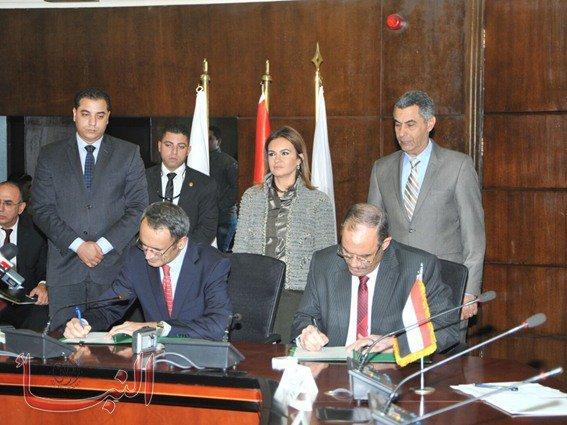
The Arab Republic of Egypt and the European Investment Bank (EIB) today signed a loan agreement worth EUR 200 million for financing a project to promote public transport in Greater Cairo.
In the presence of Dr Saad Mohamed Elgioshy, Minister of Transport, and Dr Sahar Nasr, Minister of International Cooperation, the financing agreements were signed today.
The loan is tranche B of the EUR 600 million approved by the European Investment Bank for the Cairo Metro project. The project is part of Greater Cairo’s Transport Master Plan and is expected to greatly reinforce the public transport system in this area, thus promoting a positive modal shift from private cars, alleviating congestion and associated environmental problems and contributing to climate change mitigation.
The project consists of the design, construction and commissioning of Phase 3 of Line 3 of the Cairo metro system, including infrastructure investments, civil works, rolling stock and a new stabling area for vehicle recovery, thus helping to address the shortcomings of Cairo's overburdened public transport traffic system. The project will (i) contribute to economic growth by reducing urban congestion; (ii) improve the livelihoods of Cairo’s population in an inclusive way by enhancing mobility and improving access to education and jobs; and (iii) mitigate climate change and pollution by promoting a more environmentally sustainable means of urban transport.
EIB’s lending activities in the Mediterranean region in general and Egypt in particular are based on a Mandate from the European Union – the External Lending Mandate (ELM) currently covering the period 2014/2020 – through which the Bank works together with the EU and the Government of Egypt to support socioeconomic development in the country.
Background information
The European Investment Bank (EIB) is one of the leading development finance players in the Mediterranean region. The Bank’s goal is to support economic and social development by improving people’s living conditions. The EIB aims to establish a tangible presence in the partner countries, focusing on the economic and social priorities of the beneficiary countries to which it not only contributes its financing capacity but also adds value in project implementation and modernisation of public policies through its technical and financial expertise and advisory services.
Since operations began in Egypt in 1979, the Bank has provided over EUR 6.4 billion of financing in the country. Operations in Egypt cover all sectors, including energy, transport, water and industry, as well as support for small and medium-sized enterprises (SMEs) through credit lines and risk capital. The EIB’s aim in the past years has been to deploy its resources to provide an appropriate practical response to the expectations expressed by Egyptian people.
The Government of Egypt and the European Investment Bank signed a Joint Declaration on the margins of the Egypt Economic Development Conference (EEDC) held in Sharm El-Sheikh on 13-15 March 2015. The Joint Declaration focused on improving socioeconomic infrastructure in key sectors such as energy, transport, urban development and Public-Private Partnerships and supporting private sector development in the fields of industry, Foreign Direct Investment and SMEs. In line with these priorities and responding quickly, the EIB has identified a pipeline of projects which the Bank can support with financing.

Photographer: EIB ©Ministry of Transport, Egypt
Download original